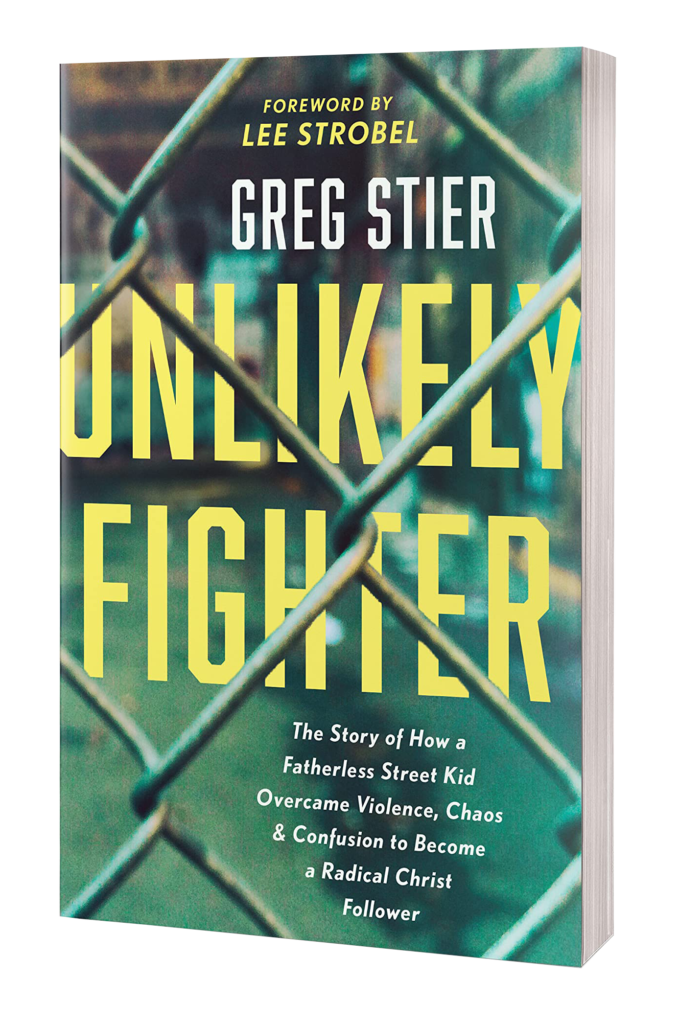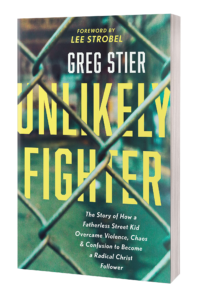For the last two and a half decades or so I have been a “youth speaker.” God has blessed me with the privilege of speaking at countless camps, retreats, festivals, Christian school chapels and youth group outreaches honing the tricky craft of inspiring, instructing and, hopefully, impacting twitchy teenagers with the message and mission of Jesus.
In addition I have spoken to somewhere around a half a million teenagers over the last 24 years through the Dare 2 Share conferences alone. These highly programmed weekend events equip thousands of teenagers in cities all across America every year to share the good news of Jesus with their peers.
The thing about preaching to teenagers is this, unlike adults they will let you know if your sermon stinks. Teens will start texting, talking or just get up and leave if they’re bored. Preaching to teenagers is like walking a tightrope without a net. If you fail it will end up with a loud splat.
I know that sound all too well. There have been countless times I’ve used illustrations that bombed or preached sermons that didn’t have the desired impact. But, over the years, God has helped me learn from my mistakes and “fail forward.” These failures have allowed me to gather a satchel full of lessons that I’ve been able to take with me and fold into my sermon prep and delivery to teenagers and have enabled me to become stronger as a youth communicator.
Over the years I’ve had the honor of meeting and working with several effective youth speakers. When I say “effective” I don’t necessarily mean the funniest, the loudest or the ones who get the most applause. I mean the ones who, yes, can deliver the goods in an engaging way, but who have something to say which gets behind the exterior and truly penetrates the hearts of the listening teenagers. Although many of these youth speakers are vastly different in many ways, they have a handful of common denominators that make them effective.
Whether you are a youth pastor, professional youth speaker, small group leader or a teenager who wants to get better at speaking/preaching to your peers my prayer is that these characteristics will help you become more effective:
1. Passion
The best youth speakers I’ve seen are on fire for the Lord and for the message that God has given them. They are not just delivering a canned speech in a canned way. The fire that burns in them relentlessly adjusts and tweaks their content so that it is making a maximum impact. When asked about his preaching style John Wesley answered, “I set myself on fire and people come to watch me burn.” The same can be said about those youth speakers who are the most effective. I’m convinced that this type of on-fire-for-Jesus passion comes from adequate time in the presence of Jesus through prayer.
2. Sensitivity
The best communicators are sensitive to the Lord when it comes to exegeting the Text they are preaching from and the audience they are preaching to. They bring the right passage to the right needs at the right time in the right way. This can only happen through wrestling with the Lord in prayer and making sure you ask the right questions about the audience you are preaching to at that particular time. Questions like, “What are their felt needs?”, “What are their real needs behind those felt needs?” and “What is the text(s) of Scripture that will answer those needs?” are all part of this discovery process.
3. Intentionality
The best youth communicators I’ve met have an agenda. They have a life message they’ve been honing, living and learning that they want to pass on to the audience. For me it is inspiring and equipping teens to reach their peers for Jesus. For my buddy Zane Black it’s inspiring teenagers to live their lives to the fullest for Jesus (resulting in evangelism and disciple multiplication.) For you it may be something completely different. But whatever it is discover it, hone it and preach it in a thousand different ways.
As Romans 1:11 reminds us, “I long to see you so that I may impart to you some spiritual gift to make you strong–” Paul had a spiritual gift he wanted to bestow upon the Italian believers he longed to visit. Every youth communicator brings a gift too, a syringe full of truth and transformation if you will, that, once the audience is fully injected with, can change their lives forever. Find the gift, that life message, and inject it into the hearts of your audience to make them stronger.
4. Authenticity
The great thing about teenagers is that their bologna barometers are always on. They know if a youth speaker is full of humility or full of themselves. Being honest with teenagers about your own struggles to apply that same truth to your own life actually encourages them to enter the fray and try. Teenagers aren’t looking for perfection but they are longing for authenticity.
5. Accuracy
Being a youth communicator is not a “Get-out-of-jail-free” card for having to rightly divide and accurately exegete God’s Word. Here’s the thing, when you preach the Word (not just your best stories with Scripture sprinkled on them like nuts on a Sundae) you preach with divine authority and spiritual gravitas. You unleash the Word of God to do it’s job and wield the sword of the Lord with precision and power.
As Hebrews 4:12-13 reminds us, “For the word of God is alive and active. Sharper than any double-edged sword, it penetrates even to dividing soul and spirit, joints and marrow; it judges the thoughts and attitudes of the heart. Nothing in all creation is hidden from God’s sight. Everything is uncovered and laid bare before the eyes of him to whom we must give account.” When God’s Word is preached accurately it convicts, convinces and cuts. It brings deep and lasting transformation and not cheap applause.
Study to show yourselves approved ladies and gentlemen. Rightly divide the Word.
6. Storytelling
Whenever I say to an audience, “Let me tell you a story” I see heads jerk up and attention re-focused. At that moment we all become little children on our mommy’s lap again, waiting to hear that captivating story told in an equally captivating way. Jesus knew this more than anyone. His parables riveted audiences and so must our stories. If you want to get good at speaking to youth you have to get better at storytelling.
I come from a long line of storytellers. Some of my best sermon illustrations were gleaned from listening to countless hours of my rough-and-tumble family members sharing stories of both before-they-met-Jesus (street fights, jail time, etc) and after-they-met-Jesus (evangelism opportunities and a few less fist fights.) As I began to tell and re-tell these stories I found them to be a powerful tool to get the attention of the audience and turn it toward my subject.
The only warning I would give is that stories should serve the sermon. The sermon is not to serve the stories.
7. Gospelizing
Charles Spurgeon once said, “I take my text and make a beeline for the cross.” The Apostle Paul said, “For I resolved to know nothing while I was with you except Jesus Christ and him crucified” 1 Corinthians 2:2. Both these men of God knew that without the exclamation point of the cross that their sermons and preaching would amount to a heap of human wisdom.
Give the Gospel every time you preach. Why? Because there are most likely teenagers who have yet to put their faith in Christ in the audience! And, even if they’re all believers in Jesus, who says we need to stop hearing the Gospel after we are saved? The Gospel both saves and sanctifies.
You and I may never be the best youth communicators in the world but we can always give the best message, the Gospel of Jesus Christ! As DL Moody once said about his own preaching, “A lot of people can preach the Gospel better but nobody can preach a better Gospel.”






